
INTERNATIONAL JOURNAL OF GLOBAL ENERGY ISSUES
Scope & Guideline
Empowering Innovations in Global Energy Research
Introduction
Aims and Scopes
- Sustainable Energy Solutions:
Research focused on developing and promoting sustainable energy practices, including renewable energy sources, energy efficiency, and low-carbon technologies. - Energy Policy and Economics:
Analysis of energy markets, investment risk, and the economic implications of energy consumption and production, particularly in the context of global challenges such as climate change. - Technological Innovations in Energy:
Exploration of cutting-edge technologies in energy generation, storage, and consumption, including artificial intelligence, smart grids, and blockchain applications. - Environmental Impact of Energy Systems:
Assessing the ecological and social implications of energy systems, including carbon emissions, ecosystem services, and sustainable land use. - Interdisciplinary Approaches to Energy Issues:
Encouragement of research that integrates various fields such as engineering, economics, and social sciences to address complex energy challenges.
Trending and Emerging
- Renewable Energy Integration:
There is a significant increase in research focused on integrating renewable energy sources, such as solar, wind, and biomass, into existing energy systems to enhance sustainability and reduce carbon footprints. - Data-Driven Energy Management:
Emerging methodologies utilizing big data, machine learning, and artificial intelligence for optimizing energy consumption and forecasting demand are gaining attention, indicating a shift towards more data-centric approaches. - Carbon Neutrality and Emission Reduction:
A growing emphasis on strategies for achieving carbon neutrality and reducing greenhouse gas emissions reflects the urgency of addressing climate change, with innovative solutions being explored. - Smart Energy Systems and IoT Applications:
The proliferation of smart technologies and Internet of Things (IoT) applications in energy management is becoming a focal point, highlighting the intersection of technology and energy efficiency. - Resilience and Adaptation in Energy Systems:
Research examining the resilience of energy systems to disruptions, whether due to climate change or geopolitical factors, is increasingly relevant, underscoring the need for adaptive strategies.
Declining or Waning
- Traditional Fossil Fuel Studies:
Research related to conventional fossil fuels, such as coal and oil extraction methods, is becoming less prominent as the focus shifts towards renewable energy sources and sustainable practices. - Basic Energy Consumption Studies:
There is a decline in studies that solely focus on basic energy consumption metrics without integrating advanced technologies or sustainability assessments, reflecting a move towards more complex analyses. - Static Energy Policy Analysis:
Static analyses of energy policies without considering dynamic market changes and technological advancements are less frequently published, as researchers seek to provide more adaptable and forward-looking insights. - Conventional Energy Efficiency Metrics:
Traditional metrics for energy efficiency that do not incorporate modern data analytics or machine learning techniques are seeing decreased emphasis, as newer methodologies gain traction. - Localized Case Studies:
While localized studies have been valuable, there is a waning interest in isolated case studies without broader applicability, as the journal encourages work that addresses global energy issues.
Similar Journals

Technology and Economics of Smart Grids and Sustainable Energy
Unveiling Insights into Smart Energy Solutions.Technology and Economics of Smart Grids and Sustainable Energy, published by SPRINGERNATURE, is an esteemed open-access journal that has been critically influential in the interdisciplinary field of energy economics and smart grid technologies since its inception in 2016. Though the journal's coverage has been discontinued in Scopus, it has made considerable strides in providing a platform for innovative research and discussions on the socio-economic implications of sustainable energy systems. As it garners attention within the academic community, it proudly ranks in the 72nd percentile among Economics and Econometrics and showcases significant contributions in Renewable Energy and Sustainability. Researchers, professionals, and students will find this journal an invaluable resource for understanding the evolving technologies and economic frameworks that underpin the global shift towards smart grids and sustainable energy solutions. With the journal's focus on promoting knowledge dissemination, it stands at the forefront of educational advancement in this vital domain, embracing diverse perspectives and fostering collaboration across disciplines.
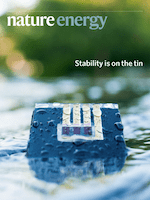
Nature Energy
Advancing sustainable energy solutions for a brighter future.Nature Energy is a leading academic journal focused on the multidisciplinary field of energy research, published by NATURE PORTFOLIO. Since its inception in 2016, the journal has rapidly established itself as a key platform for innovative research on energy technologies, sustainable practices, and advancements in renewable energy sources. With an impressive impact factor and consistently ranked in the Q1 category across various disciplines, including Electronic, Optical and Magnetic Materials, Energy Engineering, and Fuel Technology, Nature Energy attracts a global audience of researchers and professionals committed to addressing the pressing energy challenges of our time. Its Scopus rankings highlight its exceptional standing in the field, with leading positions in Energy Engineering and Renewable Energy categories, underscoring its importance in shaping future energy strategies. For those looking to contribute to the discourse on sustainable energy solutions, Nature Energy offers an engaging avenue for dissemination of cutting-edge research and innovative ideas.
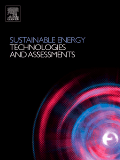
Sustainable Energy Technologies and Assessments
Advancing the Future of Sustainable EnergySustainable Energy Technologies and Assessments is a prestigious journal published by ELSEVIER, based in the United Kingdom, focusing on the critical field of energy engineering and its intersection with sustainability. Since its inception in 2013, the journal has established itself as a leading platform for disseminating innovative research and assessments of sustainable energy technologies, earning a notable Q1 ranking in both Energy Engineering and Power Technology, as well as Renewable Energy, Sustainability, and the Environment. With an impressive Scopus ranking—#22 out of 272 in Energy Engineering and #40 out of 270 in Renewable Energy—this journal is essential for researchers and professionals seeking to advance their knowledge on cutting-edge developments and assessments in sustainable energy. Although the journal operates on a subscription basis, it remains committed to promoting high-quality research that aligns with global sustainability objectives. Researchers and students alike will find invaluable insights and data that shape the future of renewable energy technologies within these pages.
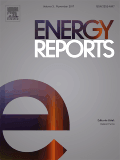
Energy Reports
Advancing Sustainable Energy Solutions for a Global AudienceEnergy Reports, published by Elsevier, is a prestigious open access journal that serves as a vital resource in the field of energy research. Since its inception in 2015, this journal has swiftly ascended to become a key player in disseminating knowledge across various energy-related disciplines, evident from its impressive Q2 ranking in the miscellaneous category of Energy for 2023 and its notable position in the 78th percentile among over 70 journals in the general energy category, ranked 16th out of 73 on Scopus. Based in the United Kingdom, Energy Reports not only fosters innovative research but also promotes accessibility by providing open access to its articles, thereby ensuring that findings reach a global audience of researchers, professionals, and students. With a commitment to advancing sustainable energy solutions and technologies, Energy Reports plays a crucial role in shaping future energy policies and practices, making it an essential platform for scholarly communication in the ever-evolving landscape of energy research.

INTERNATIONAL JOURNAL OF ENERGY RESEARCH
Connecting scholars to the pulse of energy research.INTERNATIONAL JOURNAL OF ENERGY RESEARCH (ISSN: 0363-907X; E-ISSN: 1099-114X), published by Wiley-Hindawi, stands at the forefront of energy research, offering a scholarly platform pivotal for advancing knowledge in the fields of energy engineering, nuclear energy, fuel technology, and renewable energy systems. With an impressive Q1 and Q2 ranking across several categories as of 2023, this journal reflects a commitment to high-quality, peer-reviewed research that addresses both theoretical and practical challenges in the energy sector. Now an Open Access journal since 2023, it enhances accessibility and dissemination of cutting-edge research to a global audience. Located in the United Kingdom, with an active publication history dating back to 1977, the journal aims to contribute to sustainable energy solutions and innovative technologies. Researchers, professionals, and scholars will find valuable insights and discussions here, bridging gaps in energy research and policy-making.
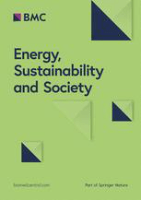
Energy Sustainability and Society
Empowering research for a sustainable energy future.Energy Sustainability and Society is a leading open-access journal published by BMC, focusing on the critical intersections of energy sustainability and societal impacts. With an impressive Impact Factor and notable rankings—including Q1 in both Development and Energy Engineering, as well as Q2 in Renewable Energy, Sustainability, and the Environment—this journal serves as a pivotal platform for researchers, professionals, and students exploring innovative solutions to energy challenges. Since its inception in 2011, the journal has consistently provided high-quality research and insights, contributing significantly to the fields of energy policy, renewable technologies, and sustainable development. Access options are fully open-access, ensuring that research is freely available to foster collaboration and knowledge-sharing across disciplines. The journal’s commitment to publishing cutting-edge research underscores its importance in shaping a sustainable energy future.
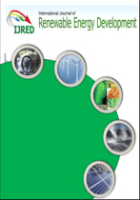
International Journal of Renewable Energy Development-IJRED
Empowering Sustainable Solutions for a Greener FutureThe International Journal of Renewable Energy Development (IJRED), published by DIPONEGORO University in Indonesia, serves as a pivotal platform for scholarly research in the dynamic fields of renewable energy and sustainability. With a dedication to advancing knowledge since its inception in 2012, IJRED has embraced an Open Access model, ensuring that vital research is freely accessible to a global audience. The journal's impressive impact factor and its classification in the Q2 and Q3 quartiles across multiple categories—including Energy Engineering and Power Technology, Environmental Engineering, and Renewable Energy, Sustainability and the Environment—underscore its significance and authority in contemporary energy discourse. Indexed in Scopus, the journal consistently ranks among the top-tier publications, making it an essential resource for researchers, professionals, and students committed to innovating sustainable solutions in the face of climate challenges. Researchers are invited to contribute to this essential body of work as the journal continues to converge impactful research until 2024.

Problemele Energeticii Regionale
Advancing Sustainable Innovations in Energy EngineeringProblemele Energeticii Regionale is a notable academic journal focused on the field of energy engineering and sustainable energy solutions, published by the Institute of Power Engineering, Academy of Sciences of Moldova. Since its inception in 2005, this Open Access journal has become a significant platform for disseminating research and innovations in various energy-related domains, including renewable solutions, fuel technology, and energy sustainability. While its impact factor metrics suggest it currently resides in the Q4 quartile category across multiple scopes—such as Energy Engineering, Power Technology, and Renewable Energy—it provides critical insights that can pave the way for advancements in regional energy challenges. Researchers, professionals, and students alike will find this journal an essential resource for understanding and contributing to the ongoing discourse in the energy sector. With its commitment to accessibility and knowledge sharing, Problemele Energeticii Regionale aims to foster a collaborative and informed community focused on energy innovation and sustainability.

Journal of the Japan Institute of Energy
Illuminating the Future of Energy Research.Journal of the Japan Institute of Energy, ISSN 0916-8753, is a reputable academic journal dedicated to the field of energy studies, reflecting the dynamic and evolving landscape of energy research. Published by the Japan Institute of Energy, the journal serves as a platform for disseminating innovative research, technologies, and methodologies related to energy engineering, renewable energy sources, and sustainability practices. While this journal does not currently offer open access, it remains a vital resource for professionals, researchers, and students alike, particularly those focused on advancing knowledge within Energy Engineering and Power Technology, Fuel Technology, and related areas. As of 2023, it is ranked in the Q4 quartile across several categories in Scopus, which highlights its foundational role in fostering scholarly discourse, despite its lower ranking in the competitive global landscape. Established in 1990 and continuously evolving, the journal provides insights into the challenges and innovations in the energy sector, making it an essential read for anyone invested in the future of energy solutions.
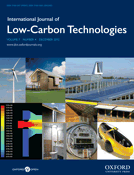
International Journal of Low-Carbon Technologies
Fueling the dialogue on resilient infrastructure and carbon reduction.International Journal of Low-Carbon Technologies is a premier, peer-reviewed publication dedicated to advancing the field of low-carbon technologies and sustainable practices. Published by OXFORD UNIVERSITY PRESS, this journal serves as a vital resource for researchers, professionals, and students alike, providing insightful research and innovative solutions for a sustainable future. With its ISSN 1748-1317 and E-ISSN 1748-1325, the journal is recognized globally, boasting an impressive impact in its categories, including a Q1 ranking in Architecture and Q2 rankings in both Civil and Structural Engineering and Environmental Science as of 2023. It is open access since 2014, facilitating the dissemination of knowledge to a wider audience, and encourages critical discourse on environmental sustainability across converging disciplines. The journal’s Scopus rankings reflecting its standing—ranked #23 in Architecture (88th percentile) and #130 in Civil and Structural Engineering—underscore its importance in driving forward the scientific agenda in low-carbon technologies. As we journey from 2007 towards 2024, the International Journal of Low-Carbon Technologies remains a cornerstone for research and dialogue in reducing carbon footprints and promoting resilient infrastructure.